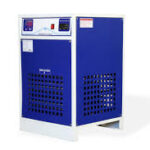Air Cooled Chillers
Air-cooled chillers are refrigeration systems that use ambient air to dissipate heat from the coolant or refrigerant, unlike water-cooled chillers, which require a water source and cooling towers.
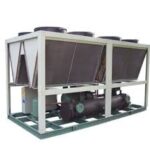
Water Cooled Chillers
Water-cooled chillers are high-performance refrigeration systems that use water-cooled condensers to dissipate heat effectively. They are preferred in industrial plants, hotels, and commercial complexes.
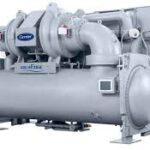
Screw Chillers
Screw chillers are refrigeration systems used for air conditioning and industrial cooling. They operate with screw compressors, ensuring efficient performance. These chillers handle large cooling loads effectively.
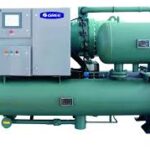
Variable Speed Chillers
Variable speed chillers integrate VFDs to control compressor speed based on demand. This reduces unnecessary power use and improves efficiency. They are widely used in industries requiring precise cooling.
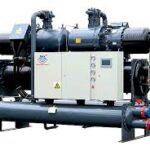
Oil Chiller
Oil chillers use refrigeration technology to maintain optimal oil temperature. They enhance machine efficiency by preventing overheating. This reduces wear and extends component lifespan.
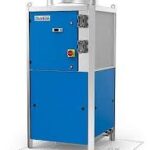
Hydraulic Oil Chiller
Hydraulic oil chillers regulate the temperature of hydraulic oil in industrial systems. They prevent overheating and maintain optimal viscosity. This ensures smooth and efficient machinery operation.
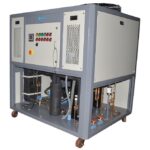
Online Chiller
Online chillers are refrigeration systems that provide continuous cooling for industrial applications. They feature internet connectivity for remote monitoring. This ensures efficient operation and easy control.
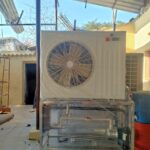
Glycol Chiller
Glycol chillers use a glycol-water mixture to remove heat from industrial processes. They are ideal for applications requiring precise temperature control. Common uses include breweries, wineries, and food processing.
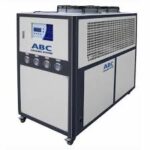
Spindle Chiller
Spindle chillers help cool high-speed rotating spindles in CNC equipment. They improve machining accuracy by preventing thermal distortion. Proper cooling extends machine lifespan.
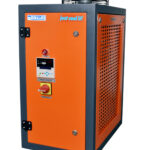
Refrigerated Air Dryer
Refrigerated air dryers are used to dehumidify compressed air by cooling it. They condense water vapor into liquid, preventing moisture-related issues. This ensures reliability in pneumatic systems.
